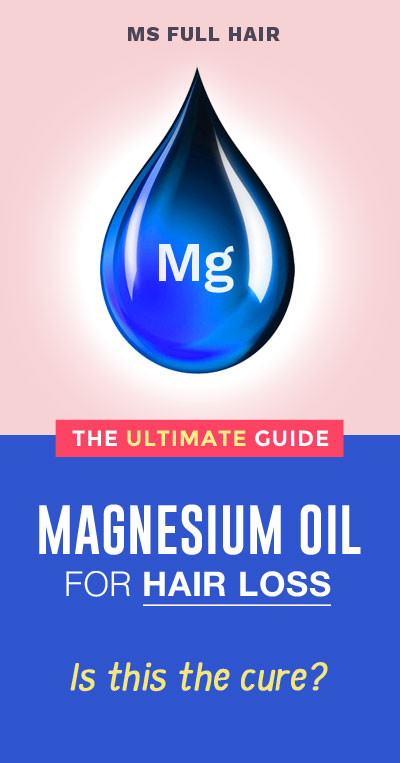
Can magnesium oil be THE ultimate answer for baldness cure?
While searching for hair loss remedies, the term “magnesium oil” kept popping up here and there. Curiously enough, we came across some fascinating information on using magnesium oil for hair loss.
Be ready for some surprising information (along with a BUNCH of study findings).
Here, we will first cover the basics of magnesium (Definition, benefits, and deficiency symptoms).
Then, you will learn how and why magnesium oil can effectively promote hair regrowth and how to get the maximum magnesium benefits for hair loss prevention for growing your hair back.
What is magnesium?
Magnesium is one of the most abundant mineral elements in the body.
We have about 25 grams of magnesium as an adult, in which more than half (50-60%) are found in bones, followed by soft tissues.
Our body needs a LARGE amount of magnesium in order to regulate 300+ enzyme biochemical reactions and many other functions.
What are magnesium benefits?
As a macro-mineral, magnesium plays a crucial role within our cells in maintaining hundreds of proper body functions.
What is magnesium good for? Some of these roles include balancing our immune system, strengthening bones, regulating blood pressure, synthesizing protein, producing energy, regulating muscle and nerve functions, and creating DNA and RNS in the body.
In other words, we need magnesium in order to stay healthy (and “normal”).
Here is a list of magnesium benefits:
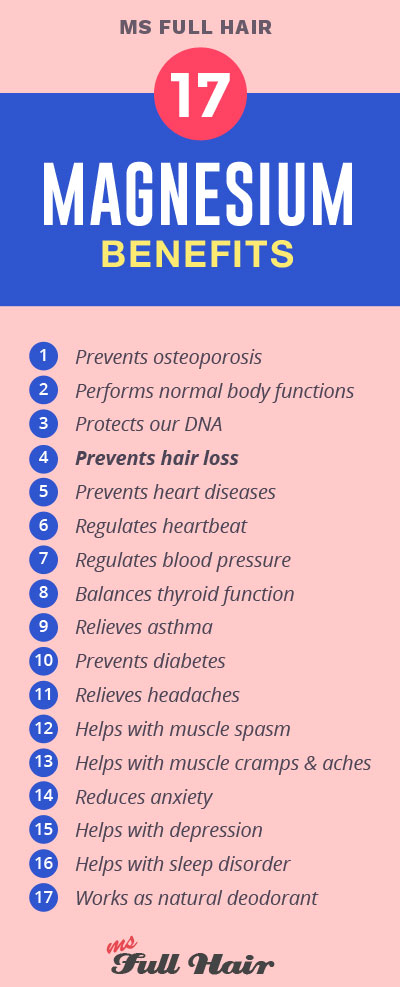
- Prevents osteoporosis
- Performs normal body functions
- Protects our DNA
- Prevents hair loss (See below)
- Prevents heart diseases
- Regulates heartbeat
- Regulates blood pressure
- Balances thyroid function
- Relieves asthma
- Prevents diabetes
- Relieves headaches
- Helps with muscle spasm
- Helps with muscle cramps and aches
- Reduces anxiety
- Helps with depression
- Helps with sleep disorder
- Works as natural deodorant
What are magnesium benefits for hair growth?
There are two important roles of magnesium when it comes to hair and how it prevents hair loss and encourage hair growth.
Magnesium influences protein synthesis
Our hair is made of protein (also often referred to as keratin).
Without magnesium, amino acids cannot be properly converted into proteins, which over 90% of our hair follicles are made up of.
It’s also important to note that the body needs LOTS of magnesium for this protein synthesis process and this in turn ensures the healthy hair growth.
Magnesium prevents scalp calcium buildup
A number of studies suggest that hair loss can be attributed to calcium deposits in follicle cells.
Often caused by scalp inflammation, calcium buildup interferes with proper follicle growth by clogging the pores and malnourishing hair follicles.
Magnesium helps dissolve these excessive calcium deposits from our follicles, which results in providing essential nutrition through the blood supply to the follicles and restoring the normal growth cycle.
Below – Magnesium and hair loss – covers about this point in great detail.
Are you magnesium deficient?
According to Dr Carolyn Dean, the author of The Magnesium Miracle, most of us are deficient in magnesium (Her book is in fact worth reading as she has dedicated her whole life researching magnesium and how it affects the human body).
Another useful piece of data by the National Health and Nutrition Examination survey shows that 68% of Americans are short on the daily recommended amount of magnesium intake.
How can I find out if I have a low magnesium level?
According to National Institutes of Health (NIH), this is not an easy task.
Why? Because magnesium is mostly located inside the bones (50-60%) and inside the cells.
While a number of different testing methods can be used to find out the magnesium level (through urine, saliva, blood-work just to name a few), NIH mentions that you’ll need comprehensive lab tests and assessments if you want to get a mostly accurate measurement (Yet again, this still doesn’t guarantee a “100% accurate” magnesium status).
Then, how do I know if I am magnesium deficient? The easiest yet most accessible way appears to be by paying attention to some of the symptoms caused by magnesium deficiency.
What are magnesium deficiency symptoms?
The early sign of low magnesium includes muscle weakness and spasms, osteoporosis, high or irregular heartbeat, loss of appetite, vomiting and seizures in the worst cases.
Here is a complete list of magnesium deficiency symptoms:
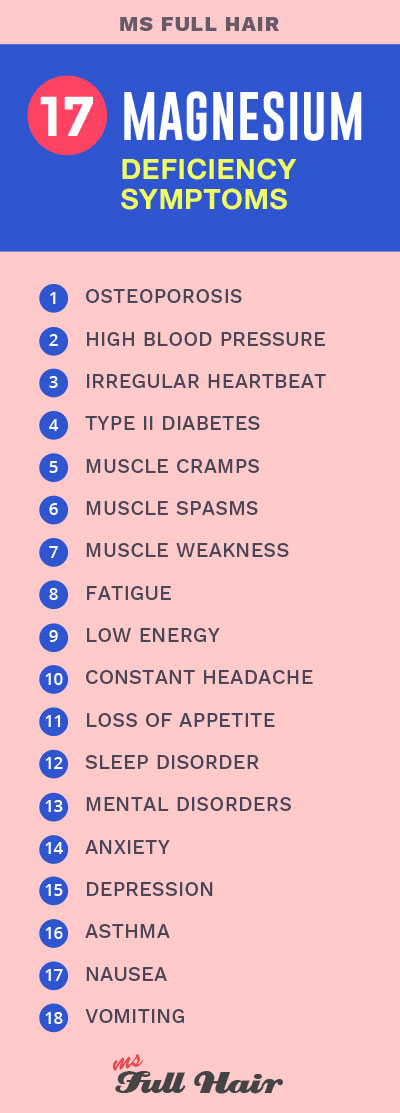
- Osteoporosis
- High blood pressure
- Irregular heartbeat
- Type II diabetes
- Muscle cramps
- Muscle spasms
- Muscle weakness
- Fatigue and low energy
- Constant headache
- Loss of appetite
- Sleep disorder
- Mental disorders
- Anxiety
- Depression
- Asthma
- Nausea
- Vomiting
Now that you have a brief overview, let’s talk about how magnesium is related to baldness.
Magnesium oil and hair loss
There are a number of different elements involved here in order to show you how magnesium deficiency and hair loss are related together.
Here is a simple diagram:
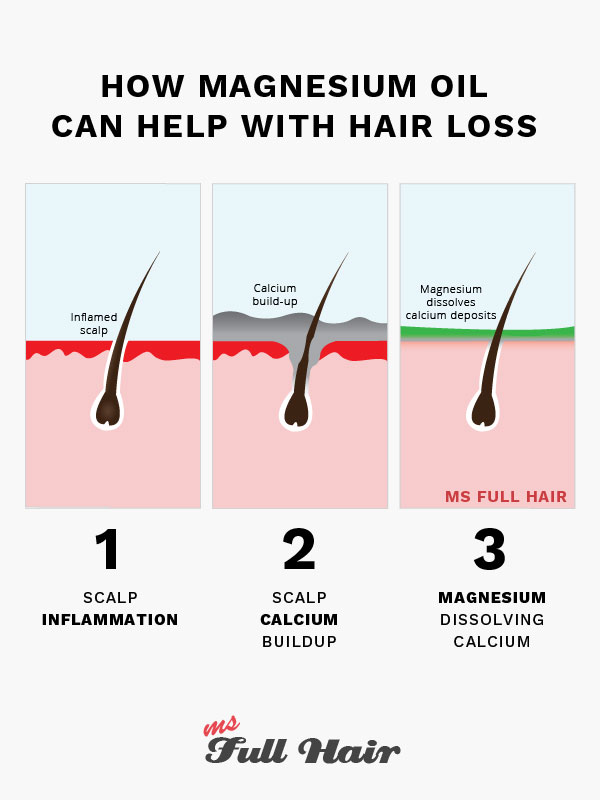
Let’s go over each step:
1. Scalp inflammation
The cause of hair loss
Inflamed scalp is one of your worst enemies when it comes to thinning hair and balding.
Some scalp inflammation types include:
- Dandruff: a white flakes on the scalp – can be caused by seborrheic dermatitis, overgrowth of Malassezia fungus, and other factors
- Seborrheic dermatitis: A type of rash that causes redness, crusty flakes, oily appearance on the scalp.
- Folliculitis: Bacterial or fungal infection in follicle cells – It causes itchiness, irritation and inflammation and scalp pimples
What do these different types of scalp inflammations have in common? They ALL interfere with the proper growth of hair follicles and thus could be the result of premature hair loss and excessive hair fall out.
Here are also a couple of studies about scalp inflammation and hair loss:
Study 1 Androgenetic alopecia follicles show inflammation & immune-reactants
A 2011 study (1) published in the Journal of Drugs in Dermatology shows how inflammation affects androgenetic alopecia (Also known as female or male pattern baldness).
The researchers performed scalp biopsies of 52 women with androgenetic alopecia over a period of time. The result shows that over 60% of participants showed inflammation and immunoreactants (immune response to recover inflammation) in their follicles.
Study 2 Inflammatory cells gain access to follicles
Another study (2) shows the relationship between inflammatory cells and alopecia and how inflammation infiltrates the bulge of follicles, which results in impairment of the normal growth cycle, thus causing hair loss.
2. Scalp calcification
Caused by possible scalp inflammation
Scalp inflammation could cause calcium buildup in follicle cells
This is where it gets interesting.
Study 1 Hair follicle calcification on mice
According to a study “The mineralization of hair follicle tissue” (3), mild skin injury can cause hair follicles to be susceptible to mineralization. When researchers tested this theory on mice, they noticed the increase amount of calcium in hair follicle tissues within 3 hours.
Study 2 Calcified scalp = Restricted blood supplies
Another observation by Frederick Hoelzel (Written for the Journal of the American Medical Association in 1942 – yes, a long time ago) shows a possible relation between calcification and baldness.
He shares his direct observation how the amount of blood vessel supplies to the scalp and number of hair follicles are correlated (he found this out by accident, when he was examining 80 cadavers for other neuology use).
He continues that those with baldness showed the scalp calcification with the restricted blood supply to the follicles (which he calls “ivory dome”), while those who had full hair on the head didn’t seem to have this calcification issue.
Now, then the question becomes: how can I remove calcium build up from the scalp?
That’s where magnesium oil for hair loss comes in.
3. Magnesium for Hair Loss
THE solution for scalp inflammation/calcification
Your body needs magnesium for hundreds of biochemical reactions, but so does your hair follicles and calcified scalp.
Magnesium as ‘Nature’s physiological calcium blocker’
In a 2017 study (5), Dr. DiNicolantonio mentions that magnesium is sometimes referred as ‘nature’s physiological calcium blocker’.
In the study, he and his team of researchers found that higher dietary magnesium intakes can give a positive effect on treating various health symptoms by decreasing the risks of “vascular events, diabetes, metabolic syndrome, as well as vascular calcification.”
Magnesium as a calcium dissolving agent
The book “The Magnesium Miracle” written by Dr Carolyn Dean suggests you to try this experiment at home, which demonstrates the imbalance of calcium and magnesium in the body. For this experiment, she says:
“Crush a calcium pill and see how much dissolves in 1 oz of water. Then crush a magnesium pill and slowly stir it into the calcium water. When you introduce the magnesium, the remaining calcium dissolves; it becomes more water-soluble. The same thing happens in your bloodstream, heart, brain, kidneys, and all the tissues in your body.”
What does this mean then for people having hair loss due to scalp calcification?
The short answer: You need magnesium
Both studies / experiments show the essential role of magnesium in relation to balancing excess calcium in tissues, which includes hair follicle tissues as well.
Magnesium oil is a natural way to dissolve excess calcium deposits in the follicle cells as well as in the body.
3 Ways to take magnesium for hair growth
There are basically 3 ways you can incorporate magnesium for hair growth: consumption of foods high in magnesium, magnesium supplements, and topical magnesium oil for hair loss balding.
In these ways (using one or all 3), you can help stop calcium deposits in hair follicles:
#1. TOP 15 Magnesium rich foods
Try to incorporate these magnesium-rich foods into your daily diet (sourced from National Institutes of Health):
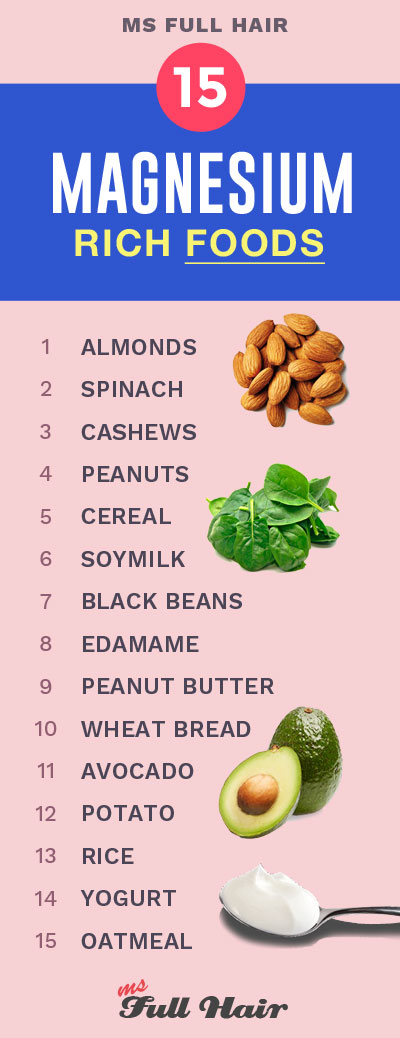
- Almonds (80 mg / serving)
- Spinach (78 mg / serving)
- Cashews (74 mg / serving)
- Peanuts (63 mg / serving)
- Cereal – shredded wheat (61 mg / serving)
- Soymilk (61 mg / serving)
- Black beans (60 mg / serving)
- Edamame (50 mg / serving)
- Peanut butter (49 mg / serving)
- Whole wheat bread (46 mg / serving)
- Avocado (44 mg / serving)
- Potato (43 mg / serving)
- Rice (42 mg / serving)
- Yogurt (42 mg / serving)
- Oatmeal (36 mg / serving)
Almonds have the most magnesium content per serving (80 mg / serving), you can easily get an individual sized package and take it to work for healthy snacks.
#2. Magnesium supplement for hair growth
Magnesium supplements are another great way to prevent hair loss.
What’s the best magnesium supplement for hair growth?
Option #1: If you are going for “quality” all the way, this magnesium supplement is your answer.
The company takes the quality of their supplements seriously by starting careful ingredient sourcing, strict manufacturing processes, and independent 3rd part lab testing to ensure both quality and full potency.
Option #2: MagSRT’s magnesium supplement is another great option to consider, because of its sustained release formula (also commonly known as the time-release formula).
A supplement with a sustained release formula is claimed to be a lot more effective than taking a regular supplement. Why? Its spread-out time release technology gives your body a longer period of time to fully receive the content, instead of just doing it one-time.
How much magnesium should I take?
Here is the current daily recommended intake of magnesium:
| AGE | MALE | FEMALE |
|---|---|---|
| 14 - 18 | 410 mg | 360 mg |
| 19 - 30 | 420 mg | 310 mg |
| 31+ | 420 mg | 320 mg |
#3. Magnesium oil for hair loss
Using magnesium oil is another faster way to get directly into the blood
What’s the best magnesium oil for hair loss?
Get PURE magnesium oil for hair: When it comes to finding best magnesium oil for hair growth or any other topical uses, what really matters is the source of magnesium in order to ensure it comes from pure and uncontaminated mineral.
The best place to find the quality magnesium appears to be the Zechstein Seabed in the Northern part of Europe, where it’s supposedly rated as “the purest in the world.”
Here are two magnesium oil brands to consider for hair loss that are from Zechstein Seabed:
Option #1: THE most famous (and well-known) magnesium oil is from Ancient Minerals which comes in 3 different sizes. If this is your first time applying the magnesium oil spray for hair loss, get the smallest size (this one) to test it out first.
Option #2: This magnesium oil spray is another option to consider. In fact, it also happens to be the Amazon best seller. Also sourced from the Zechstein Seabed, their magnesium chloride oil is 100% pure and provides rapid absorption rate.
Note that magnesium oil, in general, is available in the form of magnesium chloride – a type extracted from sea water.
Quick Q&A – Are there any more magnesium oil uses other than using it grow hair back?
There are plenty. The most common magnesium oil uses among people include: relieving muscle aches, alleviating muscle cramps (especially leg cramps), reducing back pain, soothing sore muscles, aiding sleep disorder, and getting rid of headache naturally by topically using magnesium spray. Some are even using magnesium oil for nails strengthening effect!
Magnesium oil side effects
Magnesium oil is likely to be safe and effective for adults and kids.
However, people with sensitive skin sometimes report either tingling, itchy, burning or stinging sensation.
Why does magnesium oil sting or burn the skin? This sensation is due to friction caused by undissolved particles inside magnesium oil. When you rub magnesium oil on the skin, these particles (which has larger molecule sizes) generates heat or burning sensation through friction.
How to use magnesium oil for hair loss
Here are two methods on using topical magnesium oil to reverse hair loss and stimulate hair growth.
Recipe Using magnesium oil alone
Ingredients
- Magnesium oil spray
- Derma needle roller (to increase the topical absorption)
Directions
- Spray a few spritzes of magnesium oil on the scalp, especially the thinning spots
- Leave it up to 20 minutes
- Rinse the area well
How long?
Use 3 times a week max.
Final takeaway
Should I use magnesium oil for hair loss?
Putting aside magnesium’s multiple benefits in the body temporarily, studies show that magnesium oil can be used as an effective natural treatment for reversing hair loss.
Then, can magnesium oil grow my hair back? Theoretically, as magnesium oil can dissolve excess calcium deposits on the scalp, it will restore clogged follicles to get proper nutrition, thus stimulate new healthy growth.
If you are still hesitant in applying topical magnesium oil, go with more conventional routes – foods or magnesium supplement to store your body with the enough amounts to stop hair loss naturally.
Have you tried magnesium oil for hair loss? We would love to hear your experience!


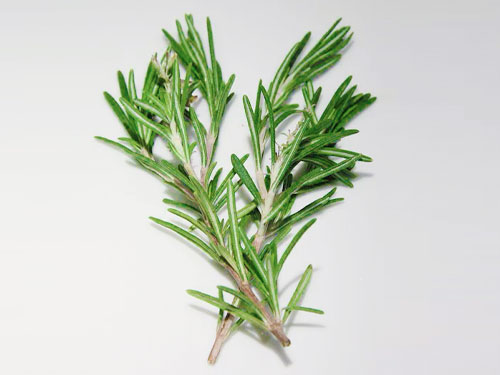
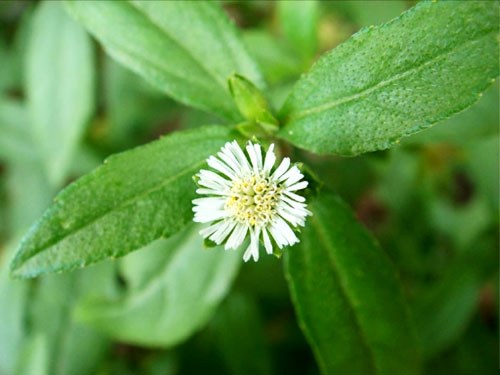
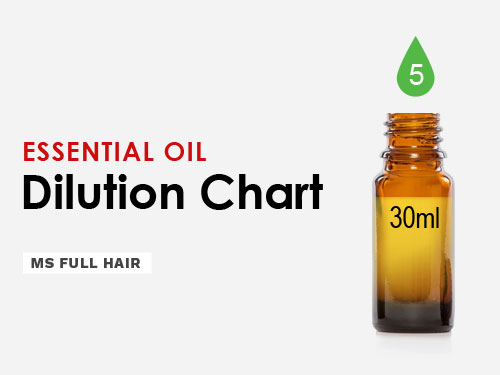
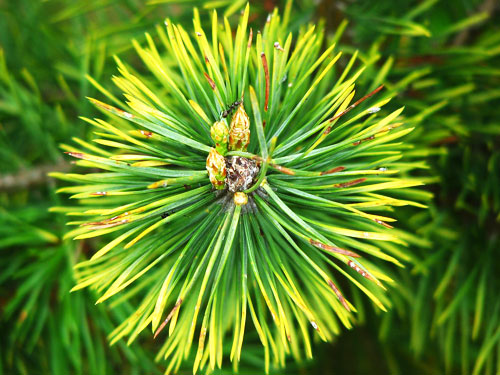

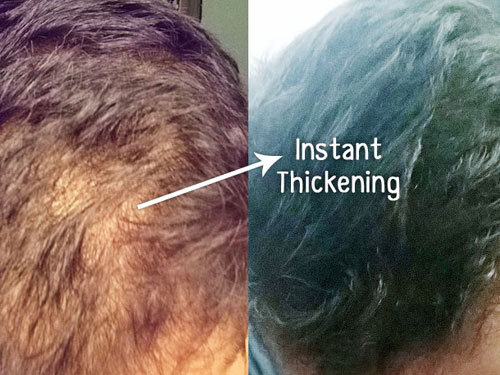

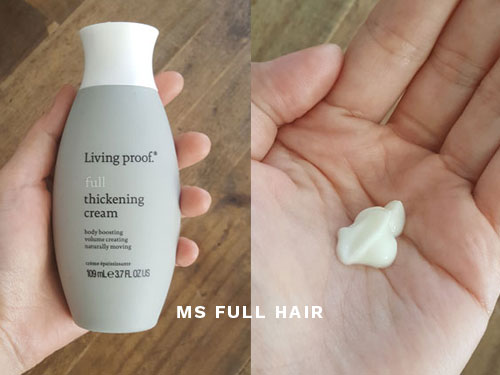
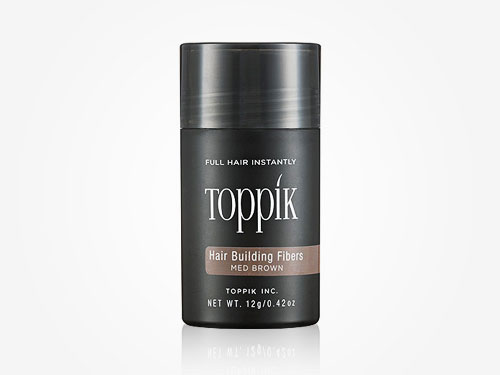
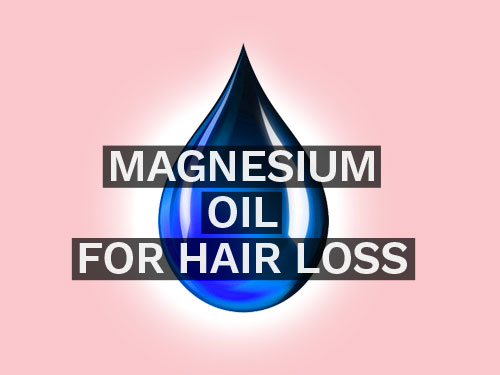
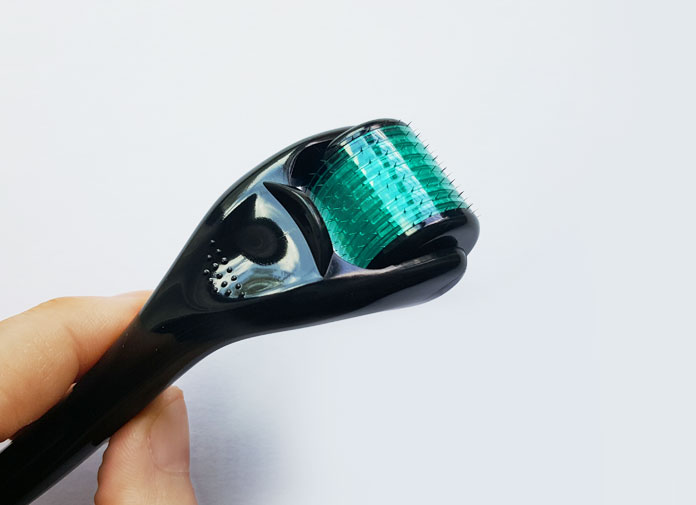
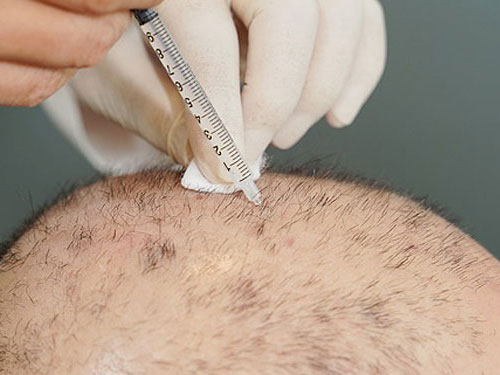
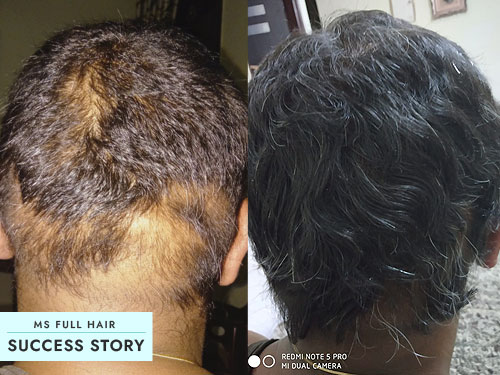
what brand of magnesium oil do you recommend as i live in sydney ,australia are any available here,cheers
Hi Noel,
Please refer to this link: enviromedica.com/international (International distributors for Ancient Minerals)
For Australia:
Rejuve Health Products Pty Ltd.
1/86 Burnett Street, Buderim, Queensland
rejuvehealth.com
Can I not use magnesium oil on my scalp ‘daily’? Why did you mention only thrice a week? Are there any side effects with daily usage? Like magnesium toxicity?